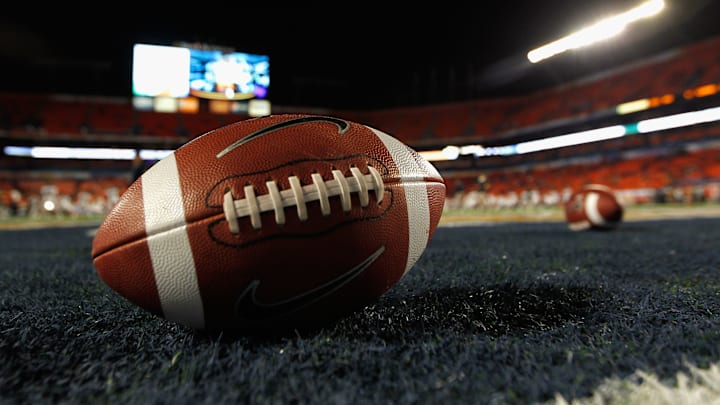The name, image and likeness (NIL) era of college athletics dramatically altered the landscape of the NCAA when it was first introduced and legalized in 2021. But now, just four short years later NIL appears to be graduating into the real world.
The Associated Press reported Thursday that the newly established body that regulates student-athletes' ability to monetize their persons is rejecting some NIL deals made with donor-backed collectives. The College Sports Commission deemed them to have no "valid business purpose" in a memo as the collectives do not provide goods or services to the public. Instead, they serve to fundraise for a university's athletics program by charging for admission to events.
The College Sports Commission issued a memo to DI ADs on Wednesday to further offer guidance on NIL deals. The memo, obtained by @YahooSports, notes that most deals that have not been cleared do not meet the "valid business purpose" definition - many of those from collectives. pic.twitter.com/v6AlRrhsPW
— Ross Dellenger (@RossDellenger) July 10, 2025
The decision has already sent shockwaves through major NCAA programs. The AP reported collectives affiliated with Colorado, Alabama, Notre Dame, Georgia and more have already shut down operations as a result of the commission's determinations.
New college sports regulator is killing NIL deals made with school collectives
Student-athletes are permitted to negotiate and sign outside deals to monetize their names, images and likenesses but any agreement valued at $600 or more must be approved by the commission's clearinghouse, NIL Go, which was launched on June 11.
The AP's reporting found that NIL Go has cleared over 1,500 deals "ranging in value from three figures to seven figures," according to the agency. More than 12,000 athletes and 1,100 institutions have registered to date.
So, in this case, deals that stipulate an athlete make an appearance for a collective at a booster event or facilitating the sale of his own merchandise do not qualify as valid because the purpose is to raise money for the athlete's team or for his own profit.
But if the collectives are assisting athletes in finding businesses that serve purposes other than fundraising, that would be permitted according to NIL Go's guidance.
“In other words, NIL collectives may act as marketing agencies that match student-athletes with businesses that have a valid business purpose and seek to use the student’s NIL to promote their businesses,” that guidance states.
It's unclear how many star athletes have been affected by this decision and what next steps will be taken but its sure to be a topic with reverberating consequences as college athletics continue to adjust to the effects of the House settlement and the revenue-sharing era.
